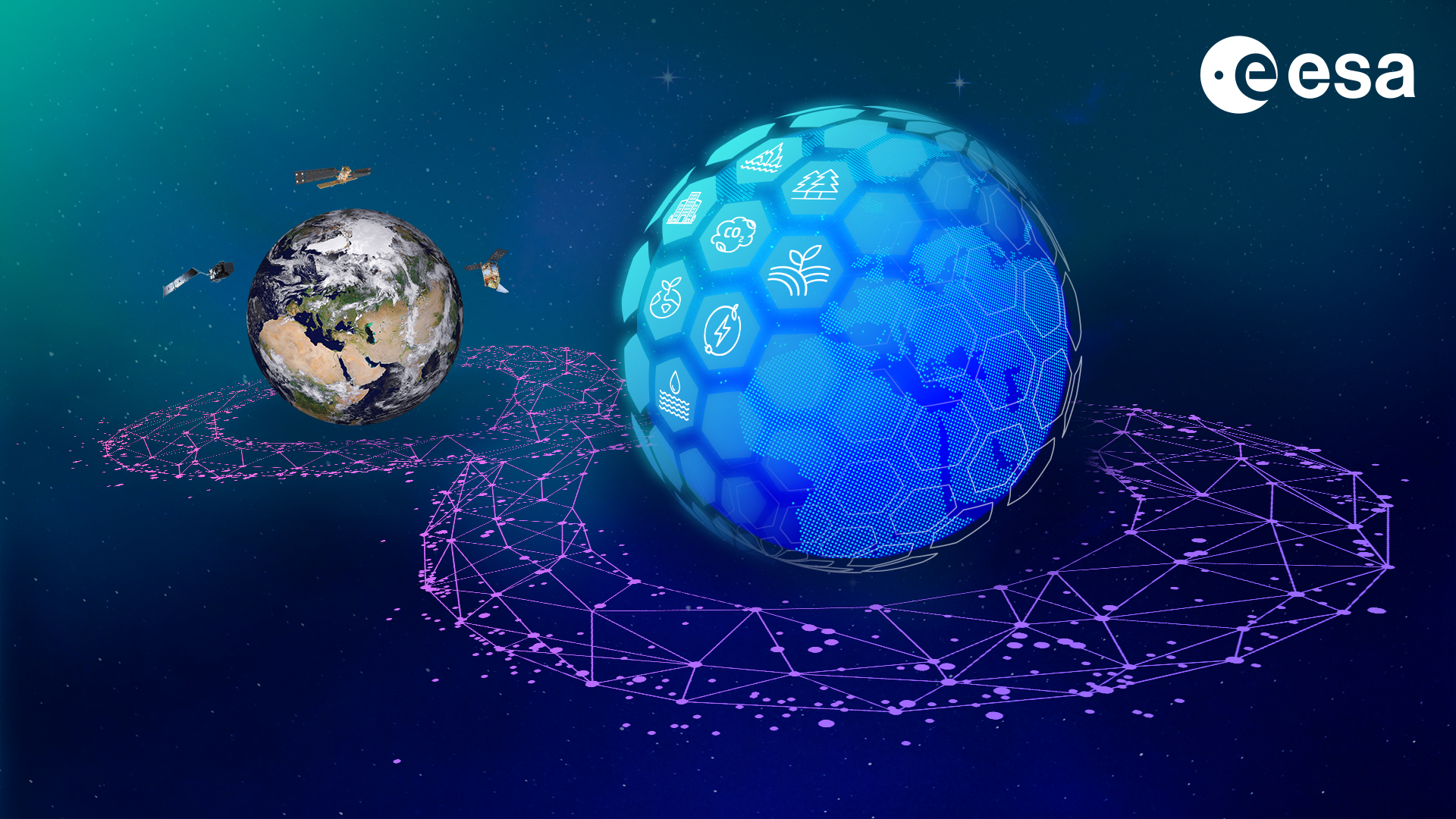
ESA Digital Twin Earth Components: Open Science Meeting 2026
February 2, 2026 - February 4, 2026
ESA-ESRIN

Background
There is an undeniable urgency to act on the unprecedented ‘triple crisis’ of climate change, biodiversity loss and pollution. This requires new advances in the way we observe, understand and predict the dynamic evolution of the Earth system and its complex interactions with human activities and ecosystems. Digital Twins have recently emerged as potential solutions to address these needs.
The data collected from satellite Earth observation powers innovative geo-information products, applications, and knowledge. Together, this enables enhanced understanding, characterisation and modelling of the Earth system, ecosystems and interaction with human activities. Based on these advanced capabilities, the ESA Digital Twin Earth (DTE) programme is designed to maximise the use of Earth Observation in developing digital twins for the Earth system. ESA DTE Digital Twin Components (DTCs) enable advanced simulations and what-if scenarios, supporting decision-making and enhancing our capacity to respond to the major environmental challenges we are facing. These DTCs address a range of Earth system elements and economic sectors from hydrology to agriculture, ice sheets to urban areas, and many more.
ESA DTE aims at contributing to the future evolution of Destination Earth (DestinE), the flagship initiative of the European Commission to develop a digital replica of the Earth, and other operational DT initiatives in Member States (MSs).
This event will feature demonstrations of the latest developments of ESA DTCs and is designed to facilitate discussions between scientists, research institutions, policymakers, innovators, industry, stakeholders, ESA DTE activities, European and national DT initiatives, to share their experience and contribute to shaping the future evolution of the use of EO in the context of Digital Twins in Europe.
Objectives
- Present the latest ESA Digital Twin projects and activities.
- Engage with stakeholders and identify their needs, requirements and feedback in relation to Digital Twin capabilities for their activities.
- Share the latest research and scientific results in EO, AI, modelling and technology contributing to advance Digital Twin capabilities.
- Identify common priorities, standards and interoperability aspects across Digital Twin activities.
- Foster community building and trigger collaborative research across projects and initiatives.
- Assessing challenges and opportunity in the use of EO data for Digital Twins.
- Contribute to defining a community Science and R&D agenda to advance in the effective use of EO data in Digital Twins.
Information and Timeline
| Abstract Opens | end of October |
| Abstract closes | 5th of December – 23.59 CET |
| Notification of Acceptance | 12th of December |
| Registration opens | 12th of December |
| Registration closes | 12th of January – 23.59 CET |
